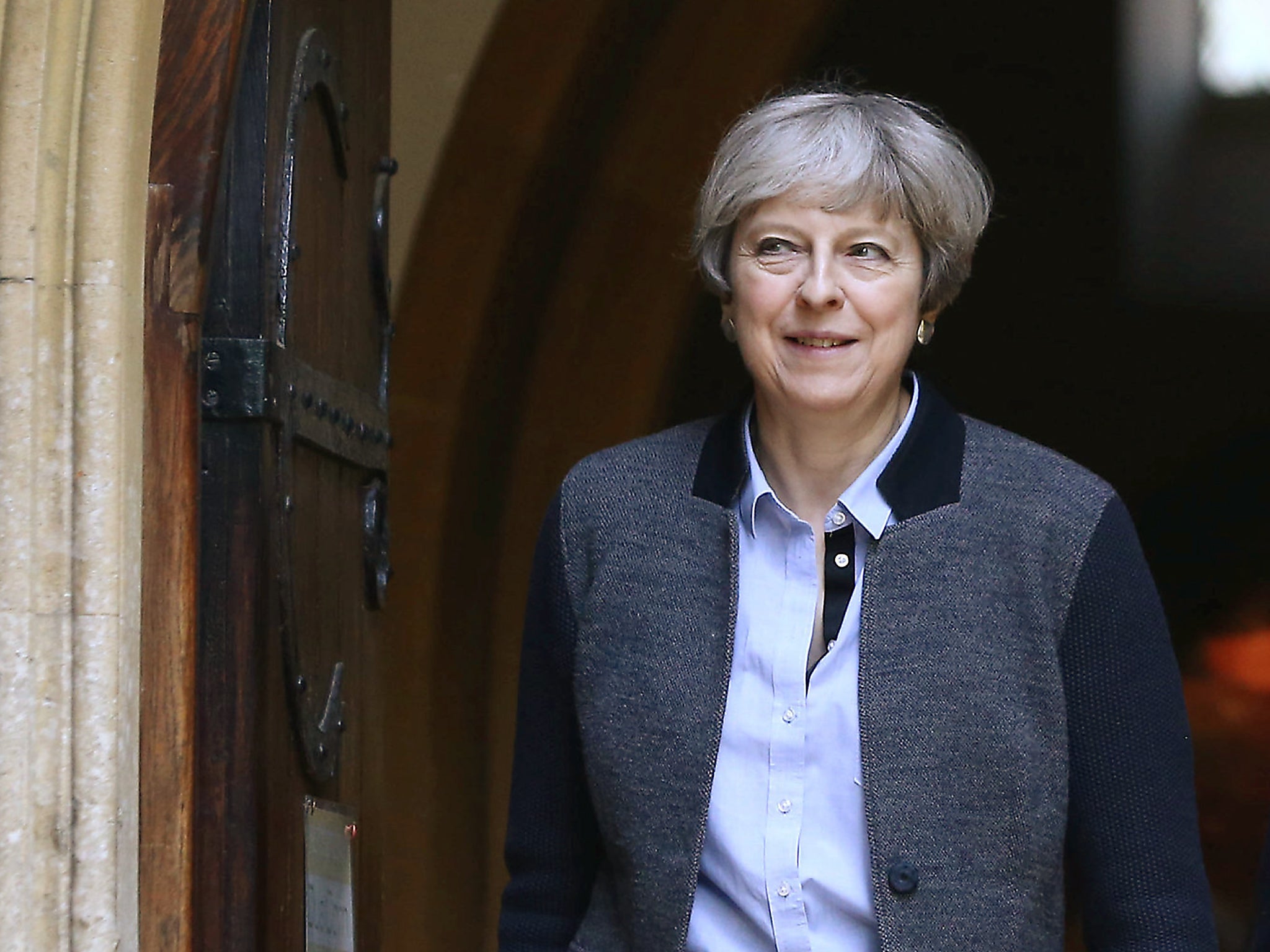Theresa May should resign over the London Bridge attack – but not for the reasons Jeremy Corbyn says
Since her time as Home Secretary, May's focus has always been on preventative security measures and enforcement. Both have consistently failed

Your support helps us to tell the story
From reproductive rights to climate change to Big Tech, The Independent is on the ground when the story is developing. Whether it's investigating the financials of Elon Musk's pro-Trump PAC or producing our latest documentary, 'The A Word', which shines a light on the American women fighting for reproductive rights, we know how important it is to parse out the facts from the messaging.
At such a critical moment in US history, we need reporters on the ground. Your donation allows us to keep sending journalists to speak to both sides of the story.
The Independent is trusted by Americans across the entire political spectrum. And unlike many other quality news outlets, we choose not to lock Americans out of our reporting and analysis with paywalls. We believe quality journalism should be available to everyone, paid for by those who can afford it.
Your support makes all the difference.This morning, figures on both sides of the political spectrum have called for the Prime Minister, Theresa May, to resign. Labour leader Jeremy Corbyn criticised her record as Home Secretary over police cuts. Steve Hilton, the former advisor to former PM David Cameron, said that May should not be “seeking re-election” over her security failings.
The aftermath of terror attacks are no time for political point-scoring – but we're in the middle of an election campaign, and we should not shy away from interrogating the question of how, after three terror attacks in three months, the UK came to be in this situation.
Something has gone very wrong indeed. In honour of the democratic process we hold so dear, and that those who wish us harm hate so much, we need to talk about exactly what that is.
According to Corbyn, May is culpable: between 2010 and 2016, as Home Secretary, the now Prime Minister oversaw the withdrawal of 20,000 armed and community police officers from the UK’s streets.
But this issue isn't about who permitted these attacks to happen or how; that's playing the ball directly into May’s court. It is about interrogating the Government's record. May's own focus has always been on preventative security measures and enforcement – both of which, if you look closely, have consistently failed.
Since 2000, there have been nine new Acts, and 100 statutory instruments, introduced that contain the term ‘terrorism’ in their title. According to David Allen Green, a law and policy commentator, “Without exaggeration: it is difficult to imagine what more laws about terrorism there could be.”
The state has unprecedented information about terror networks in the UK. Salman Abedi, the Manchester attacker, was known to the security services and one of the three terrorists shot dead at London Bridge on Saturday night had previously appeared in a Channel 4 documentary about jihadis in the UK. They were, quite clearly, already on the Government’s radar.
For those known to the authorities, 24-hour surveillance demands considerable resources. As many as two dozen people are needed to keep an individual permanently on watch. This means that only a fraction of those considered a risk to national security can be monitored.
What’s more, subjecting anyone to years of surveillance without action undermines one of the the core principles that the fight against terrorism is supposed to protect: our right to freedom of speech and movement.
In fact, there is one even more pressing question May now needs to answer: how far was she complicit in facilitating these attacks in the pursuit of short sighted British foreign and trade policy?
In the case of Manchester, Salman Abedi, was part of an extremist group, the Libyan Islamic Fighting Group. The British authorities adopted an “open door” policy for these fighters to act as proxies for the British state in removing Colonel Gaddafi from power in Libya. “I was allowed to go, no questions asked,” explained one, speaking to Middle East Eye. May was Home Secretary at that time. It was she who directly oversaw this policy.
Now, more pressingly May, is obfuscating her Government’s ties with Saudi Arabia. She has refused to publish a "sensitive" government report into terror funding in the UK, which allegedly focuses on the role of the Saudis. Damagingly, in April of this year May took her own trip to Saudi Arabia, pedalling more than £3bn worth of British arms to be used against Yemen. The inquiry commissioned was launched in 2015 and was due to be published in spring of 2016. This is information the Prime Minister has been sitting on for over a year.
If you wish to be so crude, it is possible to calculate a profit to the UK economy of £1bn per terror attack during her time as Prime Minister. Was it worth it?
For most people, the basic safety of the British people is far more important than trade deals or regime changes that benefit the UK. Our lives are worth far more than that, and the Prime Minister may come to see that view reflected at the ballot box on Thursday.
Join our commenting forum
Join thought-provoking conversations, follow other Independent readers and see their replies
Comments